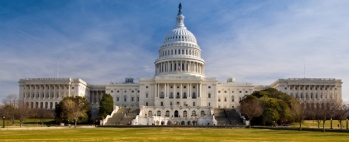CSMS# 19-000011 - Postponement of Enforcement Dates for In-Bond and ISF-5
CSMS# 19-000011 - Postponement of Enforcement Dates for In-Bond and ISF-5
01/18/2019 02:10 PM EST
Enforcement of the changes to the in-bond regulations that was scheduled to begin on February 6, 2019 has been postponed due the government funding hiatus. A new enforcement date will be established after full operations resume. This will allow CBP to reschedule the planned consultation and collaboration with the trade through the Commercial Customs Operations Advisory Committee (COAC) In-bond Working Group. At this time, enforcement is not expected prior to March 1, 2019.
Additionally, CBP published a rule on April 12, 2018 which expanded the definition of Importer Security Filing (ISF) Importer for certain types of shipments. The changes were necessary to ensure that the ISF Importer included parties that have a commercial interest in the cargo and have best access to the required data.
CBP had planned to begin issuing liquidated damages claims for violations of the ISF-5 requirements on January 21, 2019. However due to the lapse in funding, CBP is suspending the enforcement of ISF-5 filings. CBP will issue additional guidance following the end of the current funding lapse.
WESCCON 2019 - Save the Date!
Pacific Coast Council of Customs Brokers & Freight Forwarder Pacific Coast Council of Customs Brokers & Freight Forwarders Assns., Inc. (PCC)
Save the date!
WESCCON 2019
October 10-13 | Rancho Las Palmas
Rancho Mirage, CA
Never have customs brokers and freight forwarders been under fire like today.
Never has WESCCON been more timely and essential.
CBP - Import, export and more
Another Shutdown?
Forwarder Drayage Liability
ACE Migration
NAFTA -USMCA
China-US Tariff Wars
Southern Border - the Wall and Commerce
eCommerce Expanding
Deminimus - Section 321
FMC regulation
Port congestion demurrage/detention
And so Much More!
Plus legendary networking - hardest working, and most fun conference in the industry, by far!
Stay Tuned -- Registration Coming Soon
WESCCON 2019 Sponsors
WESCCON 2019 is accepting sponsors. Contact Kathy Beaubien (404-697-5056) or Becky Watkins (503-273-1237) for more information.
WESCCON Exhibitors
Contact Stephen Hudson (202-783-3333) or Anne-Marie Bush to find out more about exhibiting and reserve your booth.
Stay tuned for more important information regarding WESCCON 2019.
See you in Rancho Mirage!
WESCCON Committee
If you have questions about WESCCON or any registration problems, please contact info@WESCCON.com, or call 202-783-3333.
www.PacificCoastCouncil.org
info@WESCCON.com
WESCCON is the premier event for Customs Brokers, Freight Forwarders and NVOCC's. The three day conference registration fee includes all meals and entertainment from the moment you arrive on Thursday until you depart on Sunday. WESCCON is simply the best education offered at the best price in the industry.
A Chinese New Year Celebration
WIT-NC Presents
A Chinese New Year Celebration
Featuring a Discussion with
Baker & McKenzie on recent APAC Updates
Wednesday, February 13th
5:30 pm - 8:15 pm
Extended Program
This program will feature a discussion with two Baker & Mckenzie Partners, details forthcoming.
- Cyber-security, encryption and increased restriction in China.
- U.S. trade developments in relation to trade in strategic goods and technologies with India
- APAC Export control update, focusing on Thailand, Vietnam, and Philippines
- China's rising influence in Asian trade policy
- Asian views regarding the Trans-Pacific Partnership
- Changes in the semi-conductor industry between the U.S. and China and other key trade developments in China
- "Trump on Trade" as it pertains to trans-pacific trade
Speakers:
John McKenzie, Partner, San Francisco
Jon Cowley, member, Hong Kong
Ivy Tan, Partner, Kuala Lumpur
Who will benefit: Trade Compliance Professionals, Import and Export Managers, General Counsel, Logistics, and Supply Chain
Location:Jade Cathay Restaurant
Located at 1339 N. First St. between W. Gish and W. Rosemary. T he closest freeway access is the First St. exit off 880.
Registration: $60 - Member; $80 Non-Member; Corp. Table of 8: $450.00 Student Rate $25.00 (must be a current student with a student id). Register by 5 pm, the Friday prior to the event to avoid a $5 late registration fee..
 Cancellations: Requests must be received, in writing, by 5 pm, the Monday prior to the event. If not received timely, registrant will remain responsible for payment.
Cancellations: Requests must be received, in writing, by 5 pm, the Monday prior to the event. If not received timely, registrant will remain responsible for payment.
Members, join the WIT-NC LinkedIn Group.
For more information, please visit us at www.WIT-NC.com
CBP Form 5106 Update
Courtesy: NCBFAA U.S. Customs and Border Protection (CBP) said today that a decision will be made by February 1 regarding the 5106 cutover date. If the government is still shutdown, CBP will decide on February 1 if they will proceed.
For more information regarding the revised Form 5106 draft, see here.
For the revised draft form itself, please see here.
Info Notice 728-19-02 Interim Relocation for CBP East Bay Trade and Agriculture Units
Customs & Border Protection Telephone Lines
There are no additional phone lines, other than the ones on the information notice ( 510-271-8907 and 8922), to include on your blast to your members. If your members call and do not get an answer, please have them leave a voicemail. Officers and Ag Specialists will regularly check the voicemails and someone will respond during the day. Since the lines are a single extension, they may be better served by sending their inquiries to the email inboxes for the sections they have questions for.
OAK-IN-BOND@CBP.DHS.GOV
OAK-TRADE@CBP.DHS.GOV
OAK-DAU@CBP.DHS.GOV
OAKAGDAU@cbp.dhs.gov
Info Notice 728-19-02
SF Information Notice 728-19-03
Please find attached is the Information Notice 728-19-03 for the Electronic Filing of In-bonds.
read more...
Customs Valuation & Sec 301 Duties
Educational Committee CBFANC Education Event
Customs Valuation
Wednesday, February 13, 2019
Learn what Brokers & Importers Need to Know to Ensure Proper Valuation
Bonus Topic: Section 301 Duties -- Substantial Transformation
& its Impact on Country of Origin
Presented by: George R. Tuttle III, Law Offices of George R. Tuttle
 Join us for during the February seminar concerning Customs Valuation in a climate of heightened scrutiny. Country of Origin, whose responsibility is it?
Join us for during the February seminar concerning Customs Valuation in a climate of heightened scrutiny. Country of Origin, whose responsibility is it?
Our bonus topic will help brokers and importers learn how the Substantial Transformation Rule can reduce exposures to Section 301 duties and avoid nasty surprises!
Agenda Topics:
- Fundamentals of Customs Valuation: What to do when Transaction Value doesn’t apply?
- Transaction Value – Related Party Transfer Pricing: is it acceptable?
- “Sales for Exportation” – What’s new with “First Sale”?
- Assists & Supplemental Payments – What are they & how to report properly
- Royalties / License Fees and other “additions to value”
- “Seller financed transactions” and “interest” charges
- Can I deduct that International Freight Charge?
- CBP’s Reconciliation Program, is it right for your client?
- Avoiding Section 301 Duties & the Substantial Transformation rule
Wednesday, February 13, 2019
8:00 am – 8:30 am Registration
8:30 am to 12:00 pm – Valuation, Substantial Transformation & COO
Park Pointe Hotel
245 S. Airport Blvd., South San Francisco 94080
$65.00 Members; $80.00 Non-Members; $30 Students
CCS Credit Approved (additional $10 fee)
|
PCC Board Meeting - January 18, 2019
Jack Hubbard, Chairman of the Board PCC leaders from the entire west coast convened in San Francisco on January 19th for their quarterly board meeting. Over 30 people attended the meeting, which included members of CBFANC
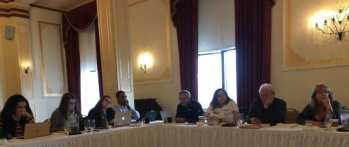
Among those who attended the PCC board meeting on Saturday were, from left, Myrna Aguila, President of the San Diego Brokers Association, Lacey Watson of Washington State (CBIFFAWS) and Kiffany Iverson of the Columbia River Association, Wayne Wagner of FedEx Trade Networks (and past president of the LACBFFA), Jayson Gispan and Debbie Edwards of CBFANC, Dan Meylor and Sandra Coty of LACBFFA.
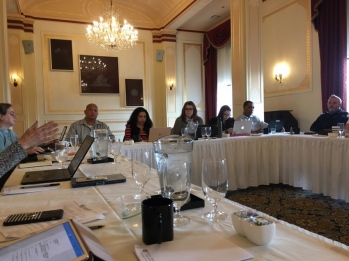
At the far left facing the camera is CBFANC President Chris Ramos of KSI. At the far right is CBFANC Vice President Jayson Gispan of Flexport.
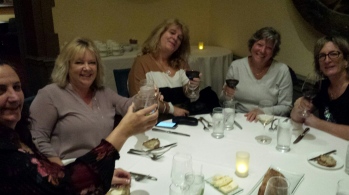
CBFANC hosted a dinner for the PCC board members and officers on Friday night, January 17 th, the before the board meeting on Saturday. Pictured at the dinner are Deidre Hudson of Avalon Risk Management, Victoria Lane of Columbia River (and past president of the PCC), Sandra Coty of LACBFFA, specially honored guest NCBFFA President Amy Magnus, and Maurine Cecil of LACBFFA.
CBFANC wishes to thank Avalon Risk Management and Roanoke Trade Services for their sponsorship of this dinner. Their support is deeply appreciated!
In Port News
Evey Hwang, CBFANC Ocean Committee 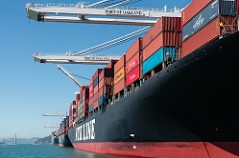
Year 2018 was busy Port-side and we can expect 2019 to be same if not more so. 2019 is starting off with changes at Port and as with any changes, stay engaged and check resources.
Street Turn fees: ZIM and Hyundai have announced fees on street turns starting beginning February. Ocean Carriers wanting to assess administrative fees on street turns? Not a good turn on what all agreed the port drayage handling exchanges to benefit all port stakeholders thereby alleviating congestion at terminals which benefits all port stakeholders including the carriers?
Terminal Appointments: Necessary part of port deliveries however appointments for in-gating empties at TraPac may become unwelcomed trend. Add to some gate issues, TraPac continues to experience congestion.
Night Gates: Now available at all Oakland Terminals, Everport experimented with night gates the second week of January. Volumes did not justify continuing but terminal offered Saturday gate on January 19 th and will again on January 26 th.
Ocean Workshop 11/28/18: Good discussion with stakeholders representing the Port, CBP, USDA, CES, terminal operators, port drayage and Customs Brokers participated. One good result is CBP to produce Info Notice for Electronic Inbonds to give clarification on Inbond (CF7512) closures which is now “paperless”. Also a nice update for port fumigation…will be soon and CBFANC will provide the news we hope…soon
USDA: Airport Office and Quarantine lab will move to new facility early 2019. USDA will join next Workshop and/or do outreach in spring.*
Ballpark at Howard Terminal: CBFANC has joined PMSA as co-signer in joining port community concern on proposed site. Traffic and other concerns make this port business our business to watch and engage in.
News at the Port of Oakland: More construction on infrastructure will result on street closures on outlaying streets (5 th Mandela & 3 rd Adeline). Watch for possible traffic delays. Maritime Newsletter - January 2019.pdf
https://content.govdelivery.com/attachments/CAPOAK/2019/01/23/file_attachments/1141665/Maritime%20Newsletter%20-%20January%202019.pdf
Port Concerns: Join CBFANC Ocean Committee on next Ocean Workshop (TBA) and provide input on USDA, fumigation, extended gates and concerns about the following:
- Is eModal a monopoly at this port? Since all three terminals utilize appointment system thru eModal, increased volume from TraPac greatly impacted system in November. In general, appointment systems need to be more static. More visible to open capacity for productive utilization.
- SB1402: Legislation was signed end September 2018 by Governor Brown. SB1402 effectively make every stakeholder connected with trucking services liable for potential state labor and employment law violations. Known as labor-supported legislation to safeguard on “wage-theft”, all users of port drayage services will need to check for trucking companies who failed final judgements from Division of Labor Standards Enforcement. Resource links included below.
http://leginfo.legislature.ca.gov/faces/billNavClient.xhtml?bill_id=201720180SB1402
https://www.dir.ca.gov/DLSE/dlse.html
PCC Mission Stipend 2019
Dear Members,
We would like to invite all to attend the very important Annual PCC Mission to DC this spring – details are attached. In addition, we are extremely pleased to announce we will again be offering a stipend to 4 of our members, on a first come first served basis, to help cover the cost of their trip.
The qualifications & requirements are listed below:
- Professional members who work and reside within Northern California
- Stipend specifically to be used for airfare, hotel room, and Mission registration, up to $2300.00
- Mandatory attendance at all meetings & presentations.
- Detailed written report of Mission.
Please email info@cbfanc.org if you are interested.
Regards,
Chris Ramos – President
CBFANC
27th Annual PCC Mission to DC!
Sunday March 31, 2019 through Tuesday April 2, 2019
For any freight forwarder or customs broker member of one of the 5 local associations of the PCC - Pacific Coast Council of Customs Brokers and Freight Forwarders.
If there was ever a time for brokers and forwarders to come to DC, it's this spring!
- Federal shutdown – long-term impact on import and export functions
- new party in control in the House; new leaders of Committees overseeing CBP, trade, etc;
- more clout for many of PCC brokers/forwarders’ Representatives.
- US-China trade war; US-Japan Trade Agreement; steel/aluminum retaliation
- e-commerce - Section 321, role of the broker
- upcoming vote on NAFTA (or "USMCA")
- the rapidly changing role of CBP
- new FMC Commissioners
What the Mission does for you. The PCC Mission means customs brokers and freight forwarders on the Pacific Coast can interact directly with government officials and Congress to hear first-hand what is really going on in DC, without the filter of cable news ‘talking heads’. Many brokers and forwarders say that the PCC Mission are three of the most worthwhile and memorable days of the year. (Plus, the Mission is worth NCBFFA credits).
Information? PCC Counsel, Peter Friedmann, OurManInDC@federalrelations.com. For hotel and registration matters: Stephen Hudson stephen@federalrelations.com 202-783-3333
Peter Friedmann
Pacific Coast Council of Customs Brokers and Freight Forwarders Assoc. – The PCC
1120 G Street, NW, Suite 1020 Washington, D.C. 20005
office: 202-783-3333 cell: 202 329 7040
ourmanindc@federalrelations.com
|
A Brief Introduction to U. S. Trade Remedy Provisions
Steven W. Baker, Law Offices of Steven W. Baker U. S. trade remedies have recently become an even more major concern for importers of goods to the U. S., and, due to foreign retaliation against U. S. origin goods, for exporters as well. Many remedies are identified by shorthand names such as “safeguard,” “escape clause” or national security actions. Many are also identified by the section number of the law establishing them, even though there may have been multiple amendments between then and now.
Trade remedies are embodied in U. S. (and numerous other country) laws, but their use is covered by various agreements reached internationally under the World Trade Organization (WTO). These agreements allow WTO members to suspend certain obligations, most often bound tariff rates, without any retaliation by the targeted countries, provided specific conditions have been demonstrated and the required procedures have been followed. The WTO may require a country that fails to meet the conditions or follow the procedures to end its remedy actions; if that country does not to do so the WTO may authorize the targeted country or countries to impose retaliatory sanctions up to the value of any lost benefits.
Some of the most significant remedy provisions are:
Section 201 of the Trade Act of 1974 (19 U. S. C. §2251) permits the President to grant temporary import relief, by raising import duties or imposing nontariff barriers on goods entering the United States in such increased quantities that they injure or threaten to injure domestic industries producing like goods. These “safeguard” or “escape cause” actions involve an investigation and recommendations by the U. S. International Trade Commission (ITC).
Section 232 of the Trade Expansion Act of 1962 (19 U. S. C. §1862) authorizes the President, through tariffs or other means, to adjust the imports of goods or materials from other countries if it deems the quantity or circumstances surrounding those imports threaten national security. An investigation is conducted and recommendations made by the Department of Commerce (DOC). There is considerable controversy both within the U. S. and the WTO regarding what is meant by national security, and whether certain actions should be considered safeguard rather than national security actions, perhaps permitting retaliation.
Section 301 of the Trade Act of 1974 ( 19 U.S.C. §2411) authorizes the President to take all appropriate action, including retaliation, to obtain the removal of any act, policy, or practice of a foreign government that violates an international trade agreement or is unjustified, unreasonable, or discriminatory, and that burdens or restricts U.S. commerce. This has primarily been applied to intellectual property complaints, although other practices may be involved. Investigation is conducted by the United States Trade Representative (USTR).
Section 337 of the Tariff Act of 1930 (19 U.S.C. §1337) makes unfair methods of competition and unfair acts involving the importation and sale of certain articles in the U.S. unlawful. These actions involving patent, copyright, trademark and trade secret issues are investigated and remedies including Exclusion Orders are imposed by the ITC.
Although not generally identified by a Section number , Antidumping duties are assessed under Section 701 of the Tariff Act of 1930 (19 U.S.C. §1671) when it is determined that foreign suppliers or manufacturers are selling goods in the United States at a less-than-fair market value. Dumping occurs when goods are sold at a price less than that of the exporter’s home market, or at a price lower than the goods’ cost of production. To receive an AD duty, the dumping must be proven harmful to a company or industry in the United States. The amount of the AD duty is usually calculated to offset the margin of dumping. The injury determination is made by the ITC, and the dumping margin calculated and the Order imposed by the International Trade Administration (ITA) of the DOC.
Similarly , Countervailing Duties are applicable under Section 731 of the Tariff Act of 1930 (19 U.S.C. §1673) when a foreign government provides subsidies or assistance to a local industry. This can be in the form of low-rate loans, tax exemptions, or indirect payments. The assistance provided enables these suppliers and manufacturers to potentially export and sell the goods for less than domestic companies. Countervailing duties also in most instances require a finding of injury or threat of injury to a domestic industry, made after an investigation by the ITC. The amount of the subsidy is calculated by the ITA, and a CV duty is assessed based on the value of the subsidy.
Actions taken (or not taken) under the several remedy provisions are subject to varying levels of judicial review. Remedies imposed by the President generally receive less oversight, while those imposed by the ITA and ITC have more detailed review provisions. All are also subject to review by the WTO for conformity with the international agreements, although as noted the characterization of national security (Section 232) remedies and the appropriate level of review are the subject of current challenges.
Steven W. Baker
Law Offices of Steven W. Baker
swbaker@swbakerlaw.com
Amid Rumors of New Auto Duties, Grassley Vows Review of Presidential Tariff Authority
Courtesy: Sandler, Travis & Rosenberg Trade Report 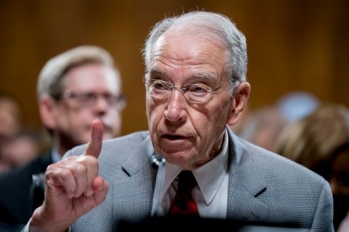
The Senate Finance Committee will review the statutory authority President Trump has used to hike tariffs on imports of steel and aluminum products under the chairmanship of Sen. Charles Grassley, R-Iowa. Grassley laid out his plans amid reports that Trump could soon use that authority to increase import duties on automobiles and auto parts.
In May 2018 the Department of Commerce self-initiated an investigation under section 232 of the Trade Expansion Act of 1962 to determine whether imports of automobiles (including SUVs, vans, and light trucks) and auto parts are harming U.S. national security. A DOC press release explained that auto manufacturing has long been a significant source of U.S. technological innovation and that this 232 investigation would therefore consider whether the decline of domestic automobile and auto parts production threatens to weaken the internal economy of the U.S., including by potentially reducing research, development, and jobs for skilled workers in connected vehicle systems, autonomous vehicles, fuel cells, electric motors and storage, advanced manufacturing processes, and other cutting-edge technologies.
The DOC has until Feb. 17 to conclude its investigation and submit a report to the president, though it could do so earlier. If the report finds that excessive automobile and auto parts imports are a threat to U.S. national security, and the president concurs, the president has the authority to adjust imports, including through the use of tariffs and quotas. Any such actions would be imposed within 15 days of the president’s determination to act.
Inside US Trade reports that the latest draft of the DOC’s report includes three remedy options: a blanket tariff of 20-25 percent on all autos and auto parts; “narrowly tailored tariffs on automated, connected, electric and shared (ACES) vehicle technologies;” and a third possibility somewhere between those two. However, the article also quotes Commerce Secretary Wilbur Ross as saying “we’ve been through lots and lots of drafts” of the report and gives little indication of when the report might be issued or what its conclusions might be.
In the meantime, Grassley said he plans to review Trump’s use of the Section 232 authority, which served as the basis for the 25 percent additional tariff imposed on steel and the 10 percent additional tariff imposed on aluminum in early 2018. “While I strongly agree with President Trump that we must have fair trade deals that benefit Americans,” Grassley said in a document outlining the committee’s agenda for 2019, “I do not believe that we should alienate our allies with tariffs disguised as national security protections. And certainly not when it comes to trade in automobiles and auto parts.”
Grassley added that he is also “not fond” of the Section 301 additional tariffs Trump has imposed on hundreds of billions of dollars’ worth of imports from China but does “agree with the reasons they’ve been applied.” He indicated no intent to challenge the White House’s use of this authority and instead pledged to “continue to engage with the Administration … in hopes that negotiations will result in a change in China’s discriminatory policies and practices and an easing of tariffs and tensions.”
(Photo: Andrew Harnik/AP)
Calendar of Events Import
|
